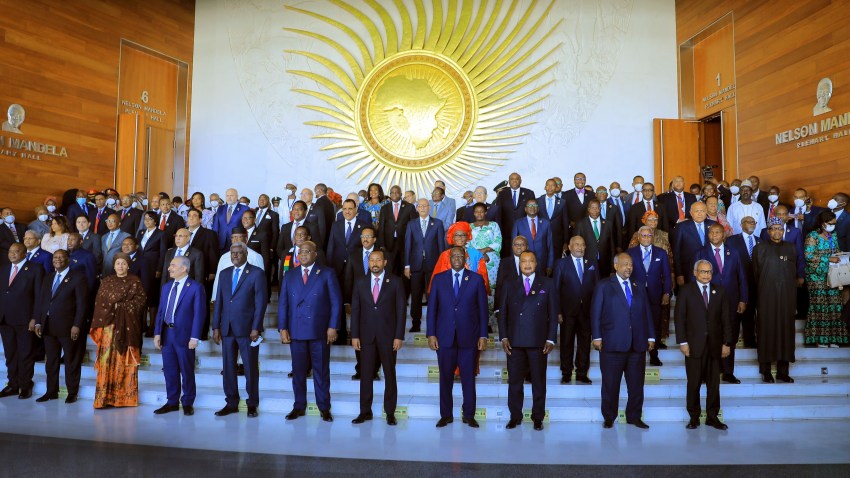It makes sense that a continent that is home to 54 countries and 1.2 billion people would also house many contradictory developments. Africa features several of the world’s fastest-growing economies and a burgeoning middle class. But much of the continent remains mired in debt, burdened by conflict and beset by elites clinging to power. To make matters worse, the economic impact of the COVID-19 pandemic undermined much of the continent’s previous growth over the past two decades, and the cost-of-living crisis due to the war in Ukraine’s impact on food and energy prices continues to be felt.
Even during the years when economies across Africa were expanding, many people were driven to migrate—either within Africa or to Europe and even South America—because of humanitarian catastrophes or because economic opportunities were not keeping up with popular aspirations. Those who remained behind at times succeeded in disrupting the status quo. Civilian-led reform movements toppled regimes in Algeria and Sudan in 2019, and recent examples of independent courts overturning fraudulent elections—as well as other signs of democratic institutions taking hold in previously corrupt or authoritarian states—offered hope for the health of democracy in Africa.
Yet, the relative frequency of elections marred by fraud and violence, including many that involve incumbents seeking constitutionally dubious third terms, confirms that the phenomenon of long-ruling authoritarian leaders—known as “presidents for life”—remains a problem. And a resurgence of military coups, including in Mali, Guinea, Chad, Sudan, Burkina Faso, Niger and most recently Gabon, has underscored the fragility of democratic governance across the continent.
From a geopolitical perspective, European nations and the United States are looking to shore up bilateral trade and investment across the continent. These moves are driven both by an interest in spurring local economies to help stem migration flows, but also to counter China’s growing presence in Africa. On the back of its Belt and Road Initiative, China has been leveraging infrastructure financing deals for access to resources and increased political influence. Russia, too, has been opportunistically—and controversially—seeking to insert itself into the continent’s affairs through the use of arms sales and military contractors that serve as unofficial state proxies.
Some African leaders say these activities smack of neocolonialism, as they seek to promote greater continental autonomy. They have taken steps to bolster internal trade opportunities and ease freedom of movement. They are positioning the African Union to play a more prominent role in resolving continental disputes, but also to contribute to fields like disease surveillance. And they are increasingly outspoken in criticizing international institutions that appear to punish Africa, to the benefit of others. Nonetheless, Africa is shaping up to be a central arena for competition among the world’s great powers, particularly in the aftermath of the Russian invasion of Ukraine, even as middle powers, like Turkey, also seek to expand their footprint and influence.
WPR has covered Africa in detail and continues to offer insights into some of the key questions shaping Africa’s future: Will popular protest movements, and a younger generation of opposition leaders, succeed in toppling long-ruling authoritarian leaders? As China’s footprint on the continent grows, how will leaders in Africa and other parts of the world respond? And will the current debt crisis across the continent spell the end of the African economic boom that has swept up countries including Ethiopia, Rwanda and Ghana?
Editor’s note: This article was originally published in May 2019 and is regularly updated.

